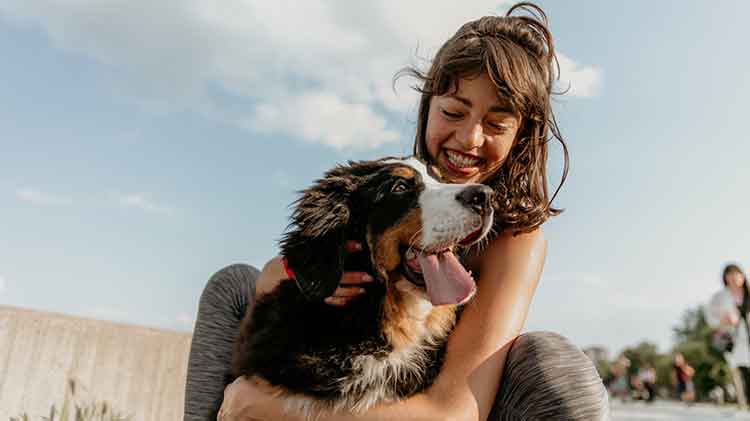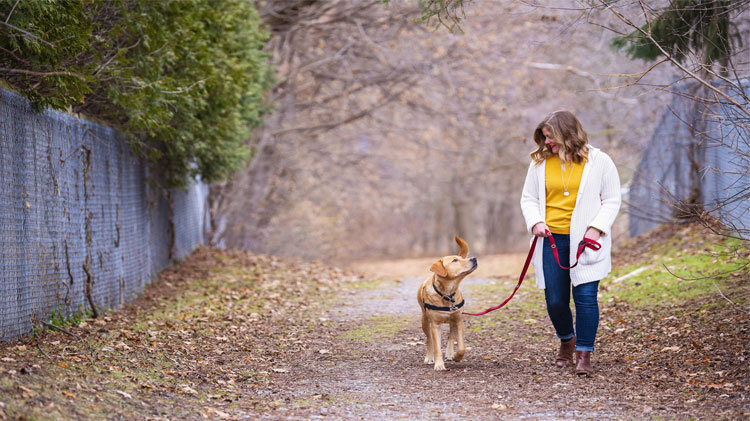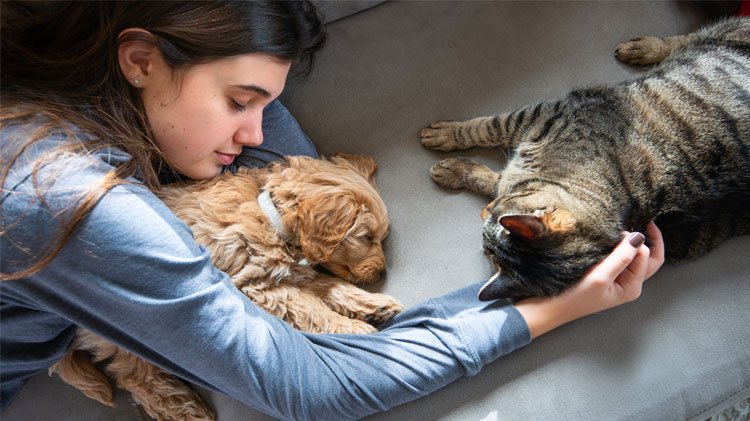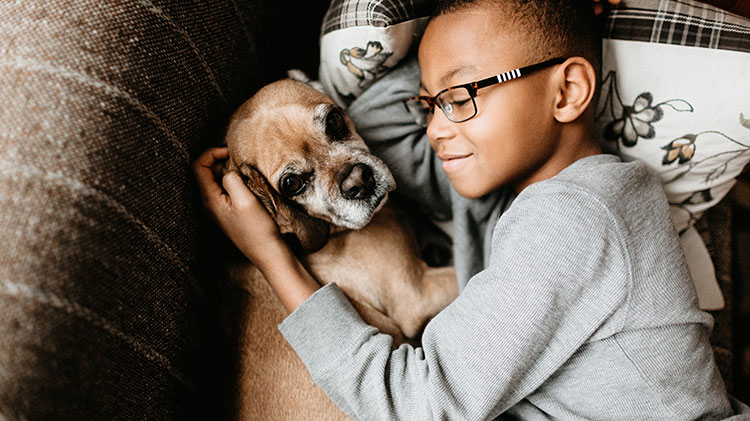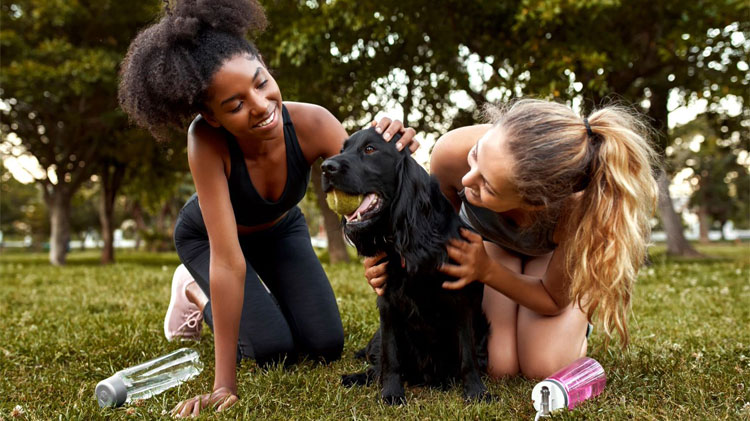How to prevent dog bites
Consider these tips to help reduce the chance of a dog bite injury — and steps to take if your dog bites.
Your dog is your responsibility. That means if it bites someone, you may be responsible for damages. Even if you think your dog is friendly, you should understand the risks of dog bites and ways to help prevent them. Under the right circumstances, any dog might bite, regardless of breed. A majority of states hold pet owners liable if a dog causes injury. For example, if your dog scratches or trips someone, you may be held responsible for any injury or property damage the dog causes. This can be costly for pet owners. State Farm® alone paid over $205 million dollars for 3,530 dog bite injury claims in 2023.
Dog bite prevention tips
In honor of National Dog Bite Prevention week (April 7-13), here are a few measures that may help reduce the risk of a dog bite:
- Spay or neuter your pet. This procedure may help reduce your dog's aggressive behaviors. Consult with your veterinarian on the right time to spay or neuter your dog.
- Socialize early. Introduce your puppy to situations and people as early as possible. Early socialization makes for a more relaxed adult dog. But watch for signs of stress during socialization, as it's a leading cause of aggression.
- When bringing home a new dog, help them adjust to their new environment and give them time to adapt to their surroundings. Patience is key!
- Hire a professional. If your dog displays aggressive behavior or is reactive, a trainer may be able to curb the problem and help the animal overcome stressors.
- Know your dog's stressors. Pay attention to your dog’s body language and learn when they are stressed to help avoid a stressful situation and help prevent a possible dog bite. For example, if your dog growls at children, keep the dog and the children separated.
- Walk your dog regularly. This will keep your pet physically and mentally healthy and provide stimulation.
- Use the right leash or harness for dog walks. Even if your dog is perfectly well-behaved without a leash, other dogs may react aggressively to an unleashed dog.
- Schedule regular vet visits. A sick or injured dog is more likely to bite.
- Always be alert. If someone approaches you, ask them to wait before petting the dog. This might allow your dog to get comfortable with the new person.
- If you see a dog who seems threatening, avoid eye contact, remain calm and do not run (it will only encourage them to chase you). Instead, back away slowly.
- If a dog is eating, sleeping or taking care of their puppies, leave them alone.
- Before you pet a dog, let them sniff you. If they seem amenable to more contact, scratch them under their chin instead of the top of their head.
- If you see a dog who is acting strange or appears to be a stray, call your local animal control.
- When playing, avoid touching your dog's mouth or head. Teach them a command like "No!" to help stop aggressive play — and when they listen, give them a treat.
Kids and dogs
Children are the most common victims of dog bites, so extra measures should be taken to teach both dogs and children how to safely interact with each other.
- Never leave children alone around any dog, even one you trust. If you can’t supervise your dog, place them in a crate or a designated child-free space.
- Just like dogs, kids need training on how they should behave. Children are much more unpredictable and loud compared to adults, which can make even the best-behaved dog fearful or aggressive. Children should act calmly and respectfully when in the presence of a dog and may need to be reminded from time to time. That’s why adult supervision is so important!
- Teach your child about boundaries. For example, a dog should be left alone when eating, sleeping, or moving away. Dogs need their alone time and their personal space should be respected at all times, so never pull on a dog’s ears or tail.
- Encourage your child to use their inside voice when in the presence of a dog. Avoid any yelling or screaming as loud, sudden noises could startle a dog.
- Keep running to a minimum and don’t let your child chase a dog. Herding dogs especially are more prone to chasing, barking and nipping at a child who’s running around the house.
- Let dogs approach your child first and on their own terms, especially if the dog is unfamiliar. It may be hard to accept, but some dogs simply don’t enjoy the company of children, and that’s okay! Never force interactions between your child and a dog.
- Reward your dog with things like treats or toys when in the presence of children. This will help your dog form positive associations to children over time.
- If your dog is apprehensive around kids, try to socialize and desensitize your dog to their trigger. To do this safely, take your dog to a children’s park and simply watch from a distance. Pair this with some yummy treats, and you may be able to get closer and closer until your dog is happy to interact with them.
- Teach your child to ask permission before petting a dog. Modeling this behavior can help reinforce this habit. Otherwise, they might impulsively attempt to pet a stranger’s dog in your absence.
What to do if your dog bites someone
If your dog bites someone, follow these steps:
- Control the dog and separate it from the victim.
- Seek medical attention for the victim if necessary. Encourage the victim to ask the doctor if a tetanus shot or antibiotics are needed, and make sure they know about any underlying health conditions.
- Exchange contact information with the victim.
- Decide who will contact animal control and the police.
- Provide the victim with proof of your dog's rabies vaccination.
- Follow all stipulated protocols provided by a doctor, police or animal control, such as quarantining your dog and seeing a dog behaviorist.
And remember, your dog is an integral member of the family. Don't forget to insure them like family. Learn about pet insurance to help protect your dog against the unexpected.
